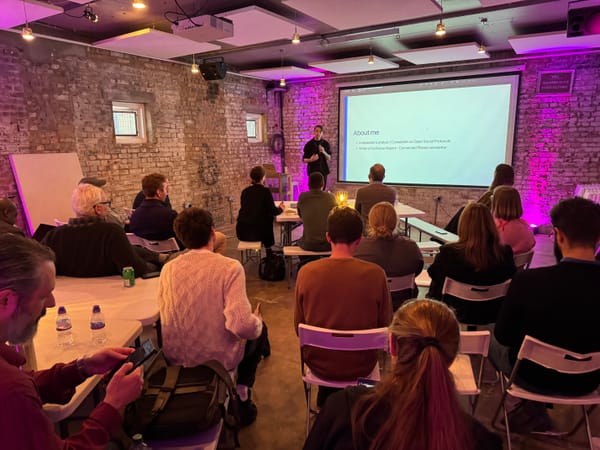
Building trust in the open
How Protocols for Publishers points to the future of journalism – and the web

A Supreme Court case about a bank robbery could redefine your digital rights.

They came for the newsroom. It was ready.

Things I've learned.

A Supreme Court case about a bank robbery could redefine your digital rights.

They came for the newsroom. It was ready.

Things I've learned.

Building a community means looking beyond coding tests.

Highlights and hopes for the new year.

Personalization is coming to journalism. The question is: who controls it?
Ben Werdmuller explores the intersection of technology, democracy, and society. Always independently published, reader-supported, and free to read.

My underlying model for everything that's happening

How Protocols for Publishers points to the future of journalism – and the web
A position statement for FediForum's unworkshop
Switzerland rejected Palantir on security grounds after independent journalism shed light on fundamental issues. Now the company is suing to tell its side of the story.
Only 8% of respondents believe individual Americans have a responsibility to pay for news. "I don't think that information should be a privilege," one respondent said.
"Fed up with increasing subscription prices, viewers embrace rogue streaming boxes." The question is: what's on them?
I made a mistake last month that hopefully others can learn from. There are rumors that ICE is turning its attention to the Philadelphia area, where I live. I’m a natural-born American citizen, but based on accounts from Minneapolis, I’m not excited to run into them, and I’
"The data are clear: The open-source culture that defined an earlier era of online journalism has collapsed."
"Red flags that both job seekers and employers should watch for, in an era of AI slop and application scams."

What does the future of engineering look like? And more.
"Bluesky built a verification system designed to distribute trust, and then didn't use it when it mattered."
"I’ve now seen dozens of companies struggling to put AI to work writing code, and each one has moved through five clear tiers of automation. That felt familiar."